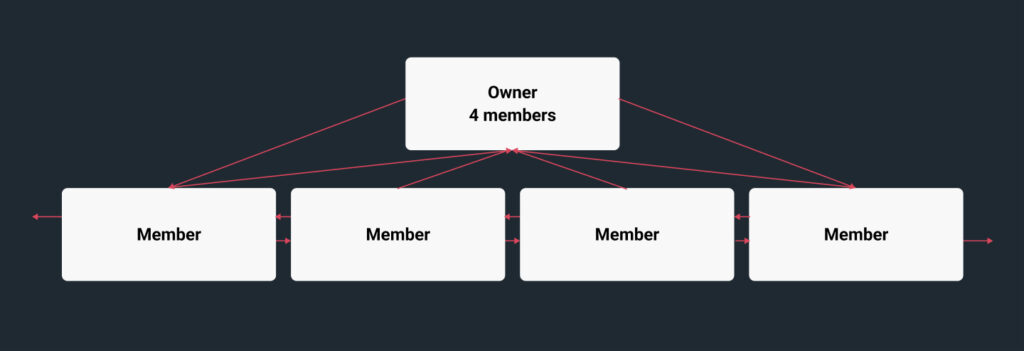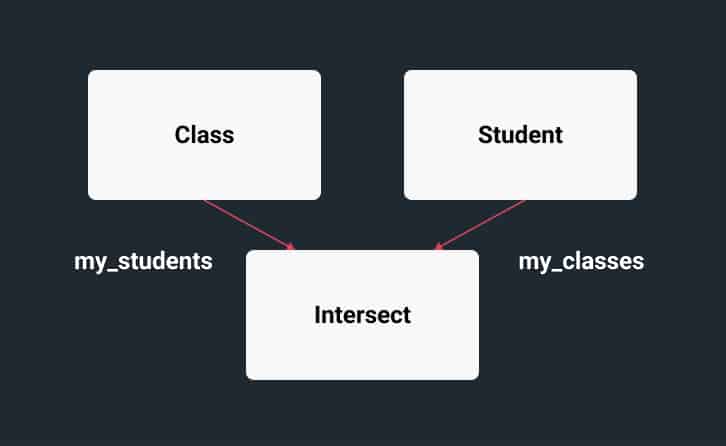Advanced Data Modeling
Relational Model
The most commonly understood and used data model today is the relational model where all data is defined in terms of tables and columns. RaimaDB allows a database to be defined using SQL the predominant relation database language. Relationships in a pure relations model are defined by comparing column values in one table to common values in another. Indexing is a common method to optimize the comparisons. RaimaDB supports both B+ tree, AVL tree, R Tree and Hash index implementations.
Network Model
Beneath the relational model in a RaimaDB is a network model, where all data is defined in terms of record types and fields. Fields may be indexed and record types may have set relationships between them, which are defined as one-to-many, owner/member relationships.
Set relationships occupy space in the records, stored in the data files. The owner record will contain pointers to member records. Member records will contain pointers to the owner record, plus the next and previous members. This allows for quick navigation among the members of a set and is conceptually very similar to a doubly linked list data structure.
RDM uses the set construct to represent relational equi-joins.

Modeling Example

The resulting database will have:
- a class table with a primary key B+ tree index on the class_id field
- a student table with a primary key B+ tree index on the name field
- an intersection table with no index requirements
- a network model relationship between the class table and the intersect table with class as the owner and intersect as the member
- a network model relationship between the student table and the intersect table with student as the owner and intersect as the member
create database students;
create table class (
class_id char(5) primary key,
class_name char(29)
);
create table student (
name char(35) primary key
);
create table intersect (
begin_date integer,
end_date integer,
status char(9),
current_grade integer,
my_students char(5) references class,
my_classes char(35) references student
);
When navigating the relationship between the class and student table the SQL optimizer will have the option to use the network model sets or the primary key columns (which are indexed).
Get started with RaimaDB today
Try RaimaDB for free today and see how screaming fast data management can get you to market on schedule and under budget.


























